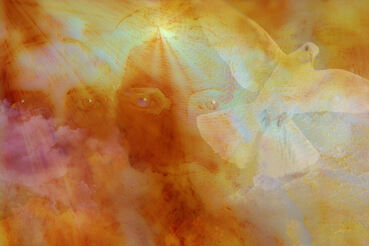
On Trinity Sunday, we realize that we really don't know that much about the Holy Spirit. Big wind, tongues of fire, strange speech of Pentecost, but what is it all about?
A look through Acts shows no consistent pattern which increases our confusion as the Spirit shows up before baptism, at baptism, after baptism, and sometimes is its own baptism - the 'baptism in the Spirit.' Paul is more concerned about the gifts of the Spirit being used to build up the faith community rather than divide it, as in Corinth. Jesus says very little about the Spirit in the gospels.
Our most descriptive account is probably in John 16. Here Jesus details three things that the Spirit will be doing after he has departed. Frankly, they aren't terribly clear for us. They seem to be stated to an audience that understands the context in ways now unfamiliar to us. So, these three agenda items for the Spirit (or Paraclete = Counselor or Advocate) need some interpreting to make sense to us.
Jesus is drawing on his own tradition for this understanding of the Spirit; it isn't really a new idea. A good place to see this is in Proverbs 8. Here we find the Spirit is portrayed as Wisdom, actually Lady Wisdom, who was present before all things and was the master crafter of creation in Genesis 1. Of course, Lady Wisdom messes up the all-male club, so we typically have Spirit-Wisdom portrayed as a dove in imagery of the Trinity. (Here is a scholar disturbed to find his all-male Trinity boat rocked: "Out of 84 OT uses of the word "spirit", in contexts traditionally assumed to be references to the Holy Spirit, 75 times it is either explicitly feminine or indeterminable (due to lack of a verb or adjective). Only nine times can "spirit" be construed as masculine, and in those cases it is unclear that it is a reference to God's Holy Spirit anyway." Click here for source.)
How do these understandings of the Spirit impact the church and the faithful today? Check out the sermon video below and learn more.
A look through Acts shows no consistent pattern which increases our confusion as the Spirit shows up before baptism, at baptism, after baptism, and sometimes is its own baptism - the 'baptism in the Spirit.' Paul is more concerned about the gifts of the Spirit being used to build up the faith community rather than divide it, as in Corinth. Jesus says very little about the Spirit in the gospels.
Our most descriptive account is probably in John 16. Here Jesus details three things that the Spirit will be doing after he has departed. Frankly, they aren't terribly clear for us. They seem to be stated to an audience that understands the context in ways now unfamiliar to us. So, these three agenda items for the Spirit (or Paraclete = Counselor or Advocate) need some interpreting to make sense to us.
Jesus is drawing on his own tradition for this understanding of the Spirit; it isn't really a new idea. A good place to see this is in Proverbs 8. Here we find the Spirit is portrayed as Wisdom, actually Lady Wisdom, who was present before all things and was the master crafter of creation in Genesis 1. Of course, Lady Wisdom messes up the all-male club, so we typically have Spirit-Wisdom portrayed as a dove in imagery of the Trinity. (Here is a scholar disturbed to find his all-male Trinity boat rocked: "Out of 84 OT uses of the word "spirit", in contexts traditionally assumed to be references to the Holy Spirit, 75 times it is either explicitly feminine or indeterminable (due to lack of a verb or adjective). Only nine times can "spirit" be construed as masculine, and in those cases it is unclear that it is a reference to God's Holy Spirit anyway." Click here for source.)
How do these understandings of the Spirit impact the church and the faithful today? Check out the sermon video below and learn more.
| 06-16-19-sermon.mp3 |
| 06-16-19-ff-answers.pdf |
| 06-16-19-getting_acquainted.pdf |
